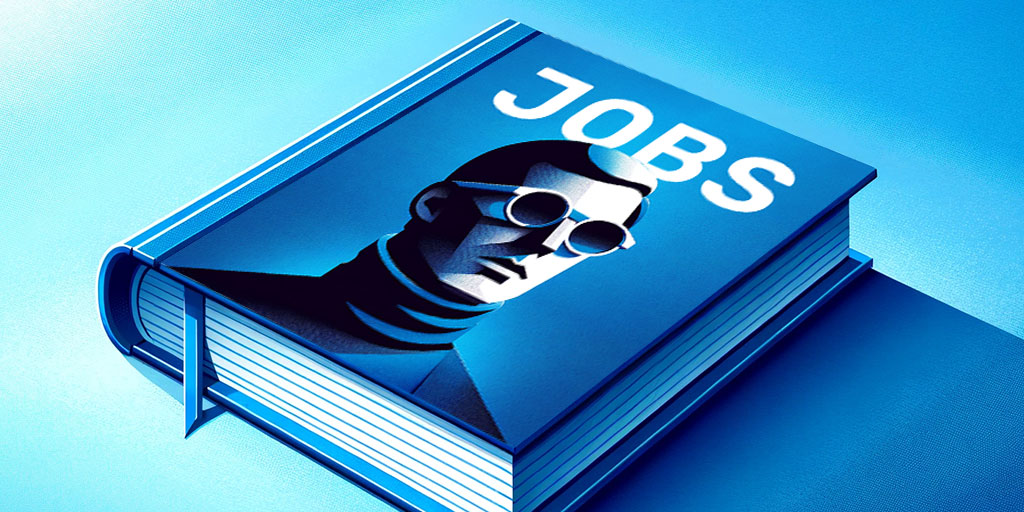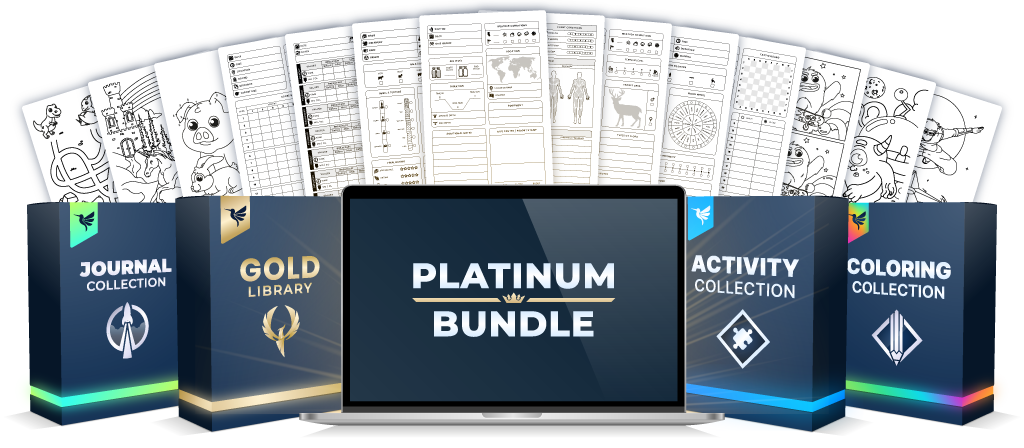If you’re embarking on the adventure of recording an audiobook, it might seem complicated! It gets easier when you break it down into parts, and one of the first things you’ll need to do is figure out which audiobook file formats will work for your project. The main thing you need to know is that there are two major types of files – lossy and lossless. With a little understanding of these terms and how they affect audiobooks, it’ll be easier to figure out which file type is best.
Lossy Compressed Audio Formats
“Lossy compressed audio formats” is the technical terminology here, but these are usually just called “lossy”. So, what makes a file lossy? All the word means is that an audio file has been compressed in a way that causes some loss in quality. Lossy formats usually only “lose” sounds that the average person can’t hear, which makes it not much of an actual loss, after all.
Usually, people opt for lossy files because they’re smaller. You can store more of them on a device without giving up much space. That’s a real win for audiobooks, as it’ll mean people have room to download them without hassle. Smaller size and a negligible quality loss make lossy files a popular choice for audiobooks, music, and much more.
There are multiple “lossy” formats, each with particular pros and cons. Knowing a bit more about each of them will help you choose which audiobook file types to go with.
MP3
By now, most people have heard of MP3. It’s one of the most widely known and easily recognizable types of audio files. MP3 uses a special type of audio coding to eliminate the extra sounds mentioned above. Since most people wouldn’t notice them in the first place, taking them out still results in an audiobook with a clear voice. Most people won’t be able to tell an MP3 apart from the “lossless” higher-quality file types explained later, and its consistent popularity has made it the top choice for recording for years.
AAX
AAX is exclusive to Audible, which makes it kind of limited. It’s encrypted, which means that without a special converter, it can only be used on Audible. While Audible does offer a converter, using it can be an added headache for listeners. It might even cause further loss of quality, which, of course, should be avoided if possible! Unless you’re okay with an audiobook only being easily accessible for Audible users, AAX might not be the best option around.
M4A/M4B
M4A files are typically found on the iTunes Apple Store. An interesting fact about M4A and M4B files: they can be compressed as lossy or lossless files! That gives them extra range. Both file types also give audiobook listeners handy features like chapter markings and images. M4B even goes further and lets you bookmark your place within an audiobook.
AAC
AAC, otherwise known as Advanced Audio Coding, was supposed to be the successor to MP3. It didn’t quite happen that way. MP3 remains massively popular, but AAC provides superior sound quality. It’s so much better, in fact, that big names like YouTube, PlayStation, and major smartphone makers like Apple and Android have all turned to AAC files.
M4P
M4P is another type of protected file used by the iTunes Apple Store, although it has been available elsewhere for years. Since it is a protected file, it could be a good option if you’re concerned about unauthorized distribution. Since its sound quality matches the AAC file types, it remains a solid choice on its own.
OGG
OGG is one of the highest-quality lossy file types around. Unfortunately, despite being generally better quality than MP3 and AAC files, most devices still don’t support OGG files. Playing an OGG audiobook typically requires users to download special software to recognize the file type, making it less convenient and accessible. However, it is growing in popularity, so that might change in the future!
WMA
WMA is another file that can be lossy or lossless. It’s a Microsoft product that originated on early Windows computers. While its sound quality outpaces MP3 and is closer to AAC or OGG files, WMA has one major drawback. It’s only available to Microsoft users. That means that WMA audiobooks won’t have as much reach as other audiobook formats.
Lossless Compressed Audio Formats
Unlike lossy audio formats, lossless audio doesn’t sacrifice detail in the compression process. The files are larger than lossy files, but the extra size comes with added quality that a lossy file type can’t really match.
If you want to know what hearing “lossless” audiobook file types is like, just think about listening to a CD. That’s roughly the kind of quality you’ll get with lossless. But, some file types do go the extra mile for ultra-high quality.
Even though this article has already mentioned that most people won’t notice what is missing in a lossy file, hearing lossless audio can still be a more pleasant experience. This is because lossless audio files compress silence instead of sound where possible.
Lossless file types aren’t always as compatible with different devices as lossy files, but several different file formats are still available.
FLAC
FLAC stands for Free Lossless Audio Codec. It’s open source, meaning no issues with intellectual property. It’s also a solid rival for the MP3, and support for FLAC continues to grow. iTunes is virtually the only platform that doesn’t support FLAC in some form, and most major operating systems will play this type of file.
WAV
WAV is an older, larger file type. It’s supported by iTunes, Windows Media Player, and VLC, and remains popular for its pure quality. WAV produces such high-quality audio that it’s typically used for things such as audio editing. However, because the files are so large, an audiobook recorded as a WAV file might reach consumers as a lossy file type instead.
ALAC
ALAC is sometimes referred to as “Apple Lossless”. It was originally exclusive to Apple and the company still heavily relies on ALAC files − a major reason that iTunes does not currently support FLAC, which is more efficient and overall more popular.
WMA
You saw this name earlier in the ‘lossy’ section, but WMA has both lossy and lossless compression available. The lossless variety can’t quite keep up with FLAC or ALAC. It has hardware issues just like the lossy version, since it’s also exclusive to Microsoft. Even if the quality were top of the line, recording a WMA audiobook would still make it hard for a non-Windows user to listen to.
Which Is the Best Audiobook Format?
Now that information about the most common lossy and lossless file types has been presented, the question remains: Which of these is best for audiobooks? While there’s not going to be a single answer that suits every audiobook and author, some file types make for superior choices.
| MP3 | AAC | FLAC | WAV | |
|---|---|---|---|---|
| Type | Lossy | Lossy | Lossless | Lossless |
| Quality | Medium | Medium | High | High |
| File Size | Small | Small | Large | Large |
| Compatibility | High | High | High | Medium |
Best Lossy Audiobook Format
Lossy file types result in smaller files that are easier to store and take up less space on people’s devices. Any dip in quality isn’t noticeable to most listeners, especially with audiobooks, so the convenience of smaller file sizes and higher accessibility make lossy files very appealing. Of the eight lossy audiobook file formats mentioned above, there are two that stand out.
MP3 is a household name. It’s a file type that enjoys near-universal support and is playable on practically any device or operating system without special software. The file sizes are small, so people don’t have to worry about expanding their storage capacity or passing up on an audiobook because they don’t have the space for it.
Indeed, the audio quality might not be quite as impressive as some others on the list, but your average listener won’t know. The added space a lossless file would take just isn’t worth it for many people.
The wide availability of MP3s can’t be discounted, either. If you produce an audiobook, you probably want it to reach as many people as possible. Most people would! In that case, MP3 will be the quickest way to hit that goal.
With that said, you can’t forget about AAC. They were meant to take over for the MP3 and have better quality coupled with their small size.
AAC doesn’t enjoy the same popularity as MP3, but that’s changing. Because it’s the preferred file type for the major names listed earlier (Apple Itunes, YouTube, etc.), it’s being used more often. It’s not out of the question that it could creep in and finally take over. In any case, it’s still a great option for audiobooks.
Best Lossless Audiobook Format
In the lossless category, it’s hard to top FLAC. The largest drawback is the lack of support in iTunes and the bigger file size that accompanies all lossless file types. Otherwise, it produces excellent quality and will result in an audiobook with good availability across different platforms.
FLAC, like AAC, continues to grow more popular with time, too. The MP3-dominated landscape might not be permanent. If you want the highest quality audiobook that is missing silence instead of sound, FLAC could be the right choice.
Last but not least, WAV lossless files have some of the best quality audio possible to pack into an audiobook. The downside? It’s probably unnecessary, especially since it runs the risk of eventually being converted to an MP3 anyway, thanks to its size. But if unadulterated quality and depth are what you’re after, an audiobook in the WAV format would provide it.
Conclusion
Overall, FLAC and AAC files provide the best experience in each category, and their growing popularity makes them very appealing. They’re not yet as widespread as the MP3, but they can yield higher-level enjoyment. If availability is the primary concern, though, nothing quite beats the MP3 as of now.
Submission Requirements by Platform
Since there are several different platforms available for audiobooks, the best file type for an audiobook may come down to where the author intends to distribute it. Each platform has its own requirements, with certain ones accepting file types that others may reject. MP3 remains the only audiobook file type you can submit to all the major platforms.
| Audible / ACX | Findaway Voices | Author’s Republic | Kobo Writing Life | Google Play | |
|---|---|---|---|---|---|
| Accepted File Types | MP3 | MP3, FLAC | MP3 | MP3, M4A | MP3, WAV, AAC, M4A, FLAC |
| Bitrate | 192 kbps
or higher |
192 kbps
or higher |
192 kbps
or higher |
– | 128 kbps
or higher |
| Sample
Rate |
44.1 kHz
or higher |
44.1 kHz
or higher |
44.1 kHz
or higher |
– | 44.1 kHz
or higher |
| Length
(Per File) |
Up to
120 min |
Up to
120 min |
Up to
80 min |
– | – |
| File Size
(Per File) |
– | – | Up to
170 MB |
Up to
200 MB |
– |
Audible/ACX
Audible has several submission requirements and exclusively supports MP3 or the Audible type AAX. You’ll be able to upload up to 120 minutes long, and each file should be a separate chapter or section. Audible only supports human narration (so no AI), and you’ll need to ensure your audio doesn’t contain any extra noise (mic pops, clicks, etc.). Specific audio-level requirements are in the table above and on Audible’s submission requirements page.
Findaway Voices
Findaway Voices accepts MP3 and FLAC files for recordings. Like Audible, recordings must be done by an actual person, not AI. There’s a 120-minute limit for files, and if you have a book with no chapters, you can break up files into 30-minute sections. Technical sound requirements (RMS, peak values, and so on) are listed on their Technical Requirements page.
Author’s Republic
Author’s Republic has a shorter run time per section (80 min compared to Findaway Voices and Audible at 120 min). It’s another MP3-exclusive platform. File sizes can’t exceed 170MB, which makes sense since it’s limited to MP3s. This is another platform requiring all recordings to be done by the human voice. It also requires files to consistently be either mono or stereo.
Kobo Writing Life
Kobo accepts M4A and MP3 files, with a size cap of 200MB per file and 2GB total for all files. Kobo also allows AI-narrated audiobooks, unlike most of the other platforms. Few specifications for the audio quality are listed on their site, but their requirements are generally laxer compared to the others.
Google Play
Google Play Books supports the widest range of file types − MP3, FLAC, AAC, WAV, and M4A. Google does state that it prefers lossless if possible but obviously accepts a few different types of lossy files as recordings. They also have some specific naming requirements and other preferences listed in the Audio Formats section.
Final Thoughts
Ultimately, the big takeaway is that the right audiobook format will accomplish what the author wants. Different goals will yield a different response to the initial question – which file type is best?
Do you want a big selection of platforms? Nothing beats the MP3. It will net you a wider audience and is easily the most accessible file type. With that said, FLAC is a solid competitor. It’s accepted by multiple platforms, and that continues to expand. These two are the winners in their categories. The lossy trophy goes to MP3 (for now), and FLAC takes the lossless gold.














